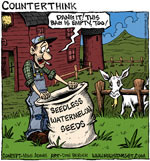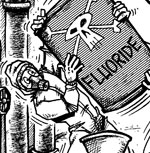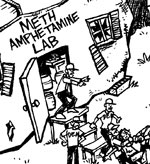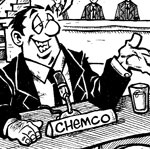Genital Warts Treatment for Women
| Share on Facebook | Share on Twitter | Share on Google+ |
Genital warts are a very common health problem in women. The US Centers for Disease Control estimate that just in the current year 3 million American women will be infected with genital warts, and that 10 million more women in the United States alone have continuing cases of the human papillomavirus (HPV) infection that causes genital warts. Medical treatment of genital warts is not pleasant, but there are natural methods that can alleviate the symptoms and greatly reduce the contagiousness of genital warts in women.
Recognizing Genital Warts in Women
The presence of genital warts is not always obvious in women. Unseen genital warts can cause bleeding that is not associated with menstruation. There may be a vaginal discharge, or just itching on the surface of the anus, vulva, or vagina. There can be raised warts or cauliflower-like growths in the ano-genital area, and there can be growths inside the cervix and inside the anal canal.
It is a good idea to have a doctor diagnose genital warts. Everything that seems to be caused by a genital wart is not necessarily due to genital warts. Other similar conditions include:
- Bowen disease, which is a large cancerous growth (squamous cell carcinoma) on the moist surfaces of the vulva, vagina, and rectum,
- Lichen planus, which is a wart-like growth caused by the immune system itself, most commonly after infection with hepatitis C (the warts do not contain the hepatitis C virus),
- Sebaceous hyperplasia, a yellowish, pimple-sized overgrowth of the sebaceous sweat glands that can also occur under the arms and around the breast at the areola, and
- Syphilis, which causes large, painless, dry, purple plaques on the skin and mucous membranes in the same areas of the body affected by genital warts.
Human Papillomavirus Virus
Diagnosis is usually confirmed by a biopsy and testing for the human papillomavirus (HPV) which causes the growth of the warts. HPV is an unusually stable virus. Unlike most viruses, it is not covered with a protein envelope that can be attacked by anti-viral agents. HPV that starts on dry skin will not spread to mucous membranes, or vice versa. There are over 80 different strains of HPV, only four of which are treated by the Gardasil vaccine.
Herbs Used for Genital Warts
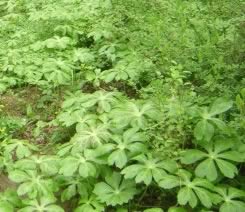 For centuries, the only treatment for genital warts in women was herbal. Saps and resins from mayapple (a plant related to goldenseal and Oregon grape root) and juniper berries were concentrated into a caustic salve that literally burned off the warts, and the underlying mucous membrane as well. These plant products are still used to make the prescription medications Condylox and Podocon-25. The modern prescription medications are a little less caustic, and they are known to work by preventing the mitosis, or splitting, of cells in the membrane. Eventually the cells hosting HPV die, and surrounding cells are also destroyed by the medication, so the virus has nowhere to go.
For centuries, the only treatment for genital warts in women was herbal. Saps and resins from mayapple (a plant related to goldenseal and Oregon grape root) and juniper berries were concentrated into a caustic salve that literally burned off the warts, and the underlying mucous membrane as well. These plant products are still used to make the prescription medications Condylox and Podocon-25. The modern prescription medications are a little less caustic, and they are known to work by preventing the mitosis, or splitting, of cells in the membrane. Eventually the cells hosting HPV die, and surrounding cells are also destroyed by the medication, so the virus has nowhere to go.Doctors also burn off warts with trichloroacetic acid-which can actually be less unpleasant than the herbal remedies. The warts can be cauterized with an electric needle, or frozen with liquid nitrogen. When these methods do not work, doctors sometimes offer interferon (Intron) treatment, an antiviral treatment that always causes flu-like symptoms. When squamous cell carcinoma is suspected, the doctor may treat the warts with the chemotherapy drug 5-fluorouracil, (5-FU, also marketed as Adrucil, Efudex, or Flurodex). All of the heavy-medications for genital warts have heavy-duty side effects, but natural methods usually can keep the condition from progressing so far that drastic treatment is required.
Diet for Fighting Genital Warts
Some simple, common, inexpensive foods fight genital warts. One of them is that vegetable highest in beta-carotene, carrots.
Beta-carotene is especially important during the earliest stages of HPV infection, before genital warts ever appear. One research study found that women who go on to develop genital warts and cervical dysplasia have an average of just 2/3 as much beta-carotene in their bloodstreams as healthy women. Beta-carotene, which is abundant in carrots, as well as alpha-carotene, which is found in dark green vegetables as well as carrots, sweet potatoes, and winter squash, help ensure the adhesion of skin cells to each other. When skin cells "stick" to the basement membrane holding them together the cauliflower-like lesions cannot grow. Alpha-carotene and beta-carotene fight genital warts in both women and men.
B Vitamins for Fighting Genital Warts
It's actually pretty difficult to develop a B-vitamin deficiency. B vitamins are added to flour and cereals, and the standard Western diet, even a junk food diet, usually contains lots of the various forms of vitamin B. Women who use certain medications, however, may need supplemental B vitamins to fight HPV to prevent genital warts.
Folic acid and vitamin B12 together help white blood cells release the chemicals that interfere with viral ability to reproduce. Even when bloodstream levels of these vitamins are normal, they can be deficient in the lining of the cervix.
The women who are most likely to have problems with folic acid and vitamin B12 are those who take seizure medications, such as valproic acid, phenobarbital, phenytoin, forphenytoin, or carbamazepine. These medications interfere with the body's ability to absorb folic acid and B12 from food.
Women who take NSAID painkillers such as aspirin, Ibuprofen, Aleve, and Tylenol can also develop folic acid and B12 deficiencies because of the depletion of these vitamins inside the body. B12 depletion can also occur after taking sulfa drugs. Women who have been exposed to HPV or who already have genital warts should take the minimum recommended daily intake of folic acid (folate) and vitamin B12 if they take any of these drugs.
Why not take more? The problem with megadoses is that they can interfere with the action of the drugs that cause the deficiency. A little supplementation helps restore vitamin levels. A lot of supplementation causes a different set of problems.
Women who are on the contraceptive Pill often develop pyridoxine (vitamin B6) deficiency. One study found that vitamin B6 levels are 33% lower in women in whom HPV progresses to cervical cancer than in healthy women. Women who take seizure medication or theophylline (Theo-Dur) for asthma, however, must be careful to take the minimum recommended daily intake of B6 to keep the vitamin from interfering with the medication.
Antioxidants for Fighting Genital Warts
Vitamin C, vitamin E, and selenium together help the body generate glutathione peroxidase, an antioxidant enzyme that fights inflammation in mucous membranes and in the skin. Although the greatest increase in glutathione peroxidase production occurs after supplementation with vitamin E, the three supplements together have a synergistic effect that is greater than the sum of their effects when taken separately.
A study at the Northern Ireland Centre for Diet and Helath found that supplementing with vitamin C increases the amount of available vitamin E in the bloodstream by 10%, and that supplementing with vitamin E increases the amount of available vitamin C in the bloodstream by 60%. Vitamin E also complements and preserves alpha- and beta-carotene, mentioned above.
One research study involving 206 women showed that the highest levels of zinc in the bloodstream were associated with the lowest rates of progression from HPV infection to cervical cancer. Zinc has not been studied for genital warts in men but it is likely to prevent secondary infection from crumbling, bruised, or bleeding genital warts.
How do you put together a program using these nutritional supplements? Here is one protocol that delivers all of the needed nutrients in effective amounts
- Beta-carotene: 200,000 IU per day.
- Folic acid: 2.5 mg per day.
- Pyridoxine (Vitamin B6): 50 mg 3 times per day.
- Selenium: 400 micrograms per day.
- Vitamin A: 50,000 IU per day. Women who are or who may become pregnant should strictly limit their intake of vitamin A to 5,000 IU per day or less.
- Vitamin B12: 1 mg per day.
- Vitamin C: 1,000 mg per day.
- Vitamin E: 800 IU per day.
- Zinc picolinate: 30 mg per day.
Taking these supplements, however, is not all you can do to fight genital warts.
Homeopathy for Genital Warts
I will admit that I was very skeptical of homeopathy for many years. The idea that somehow a liquid or a pill could carry the "signature" of healing ingredient without containing the physical material itself struck me as, well, at best highly unlikely. Then I had a chance meeting with a French physician named Jacques Benveniste who showed that homeopathy actually worked against infections-and after he explained his work and another doctor shared case files for about 100 cases, I became convinced that there are many things that work that I do not fully understand. And there are people who get results from homeopathy for genital warts.
 Ideally, you would work with a professional homeopath who would spend several hours getting to know you before choosing a remedy best suited to your symptoms. The surprising thing about homeopathy is, however, that it isn't the interaction with the homeopathic physician that cures you. It's the homeopathic medication itself. You could, and many people do, simply buy a test kit of 18 or 36 homeopathic remedies and try them one by one until you found the remedy that works.
Ideally, you would work with a professional homeopath who would spend several hours getting to know you before choosing a remedy best suited to your symptoms. The surprising thing about homeopathy is, however, that it isn't the interaction with the homeopathic physician that cures you. It's the homeopathic medication itself. You could, and many people do, simply buy a test kit of 18 or 36 homeopathic remedies and try them one by one until you found the remedy that works.
It's possible to narrow down the list, however, to about six products that are most likely to be helpful for genital warts:
- Gallium is a relatively new homeopathic remedy-discovered in 1875. The homeopathic who prescribes gallium would be looking for signs of tissues that are "glued together," such as sticky eyelids, nausea or vomiting from food that can't go down the pyloric valve and out the stomach, build up of earwax, or inflammation that has spread from one side of the cervix to the other. The action of gallium is usually described as "detoxifying," but it is specifically detoxifying of "sticky" tissues.
- Kali muriaticum, sometimes called kali mur, is used to treat exudative inflammation. It is given to treat ear infections, and it is also given for the early stages of ano-genital warts.
- Kali phosphoricum is one of the twelve original remedies of homeopathic medicine, used since the 1700's. This remedy is designed to treat excessive discharge or severe body odors. Like gallium, it appears in many homeopathic protocols for genital warts, cervical dysplasia, and cervicitis.
- Natrium muriaticum, also known as nat mur, is given for either dryness or discharge along with "pins and needles" discomfort in the vagina. It is also given for depression.
- Urtica urens (urtica ur) is a homeopathic remedy derived from stinging nettles. Under the principle of "like treats like," this preparation is used to treating any kind of stinging in the urinary tract.
The number before the X in a homeopathic preparation tells you how many times an active ingredient has been diluted 10 times. A 3X homeopathic remedy contains 1/1000 of the original active ingredient. A 12X contains just one-trillionth of the original active ingredient. The more dilute the solution, the more times the the active ingredient has been "imprinted" on the water or lactose used to suspend it. A 3X homeopathic product is the mildest strength available, while a 30X product, which contains just 0.0000000000000000000000000001% of the original active ingredient, is considered especially potent.
One way to use homeopathic treatment for genital warts is to buy a lot of homeopathic remedies and try each one for a month. It's a lot easier and less expensive just to use a product like Native Remedies Skin Dr. which combines the five most frequently used homeopathic remedies into a single pill. You should experience relief from itching, burning, bleeding, discharge, and odor first, and then the warts themselves would dissipate slowly and naturally.
Frequently Asked Questions
Q. Will condoms prevent the spread of genital warts?
A. The mucus lining the cervix is acidic. Semen is alkaline. Direct contact with semen changes the pH of the cervix so that it is more likely to be infected by viruses. Condoms reduce-but do not eliminate-the risk of spreading genital warts by providing a physical barrier and also by preventing changes in cervical pH. Generally speaking, using condoms less than 50% of the time results in 200% greater risk of catching the infection.
Q. Can HPV infect the anal canal?
A. Yes. A male sex partner penetrating the anus who catches the HPV-16 human papillomavirus has a greatly increased risk of penile cancer, which is treated by penile amputation.
Q. Aside from condoms, is there anything that can be done to prevent the spread of the virus that causes genital warts?
A. A study of prostitutes in Seattle found that the transmission of the virus was nearly 98% lower in women who had the highest concentrations of beta-carotene in their bloodstreams. I would not advise that eating carrots is as effective as wearing condoms, but it does offer protection.
-
Skin CareMen Skin Care
-
Free ResourcesFree eBooks
-
Half of the modern drugs could well be thrown out of the window, except that the birds might eat them.Dr. Martin Henry Fischer
-
Featured Health SupplementAll ingredients are assessed at molecular level to ensure synergy, safety and effectiveness.
 This is crucial because when some ingredients are combined they will help create other substances in the body.
This is crucial because when some ingredients are combined they will help create other substances in the body.
-
